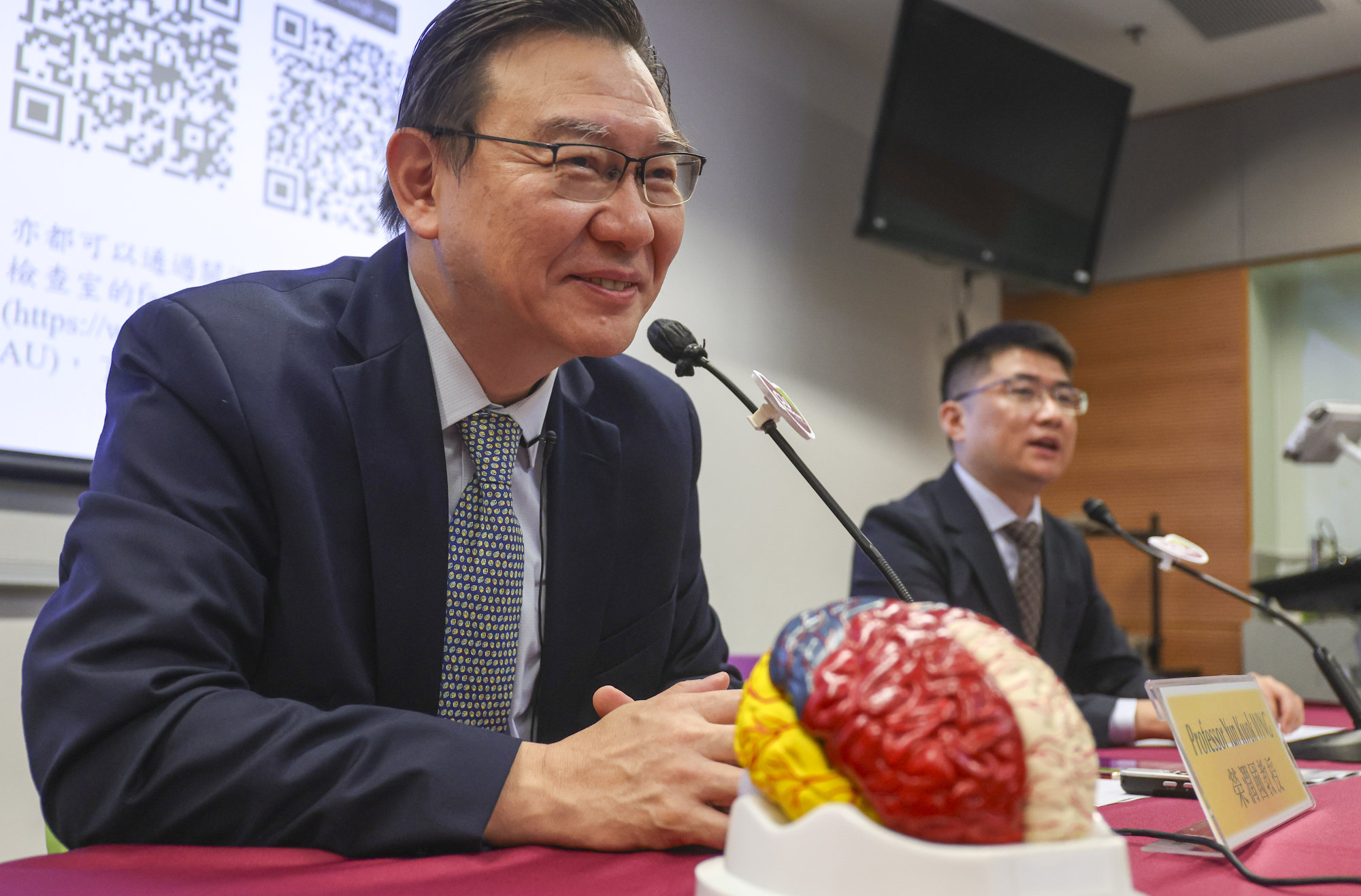
Risk of sleep disorder linked to neurodegeneration increases in those with family history of condition: Hong Kong study
- REM Sleep Behaviour Disorder (RBD) can be used as marker to predict chances of developing diseases such as Parkinson’s, according to researchers
- Researchers find risk of developing sleeping disorder is two to 11 times higher in relatives of people with both RBD and psychiatric disorders
Hong Kong retiree Pako Leung, 68, started having violent nightmares at least once a month a year after he was diagnosed with depression in 2010.
“I dreamed that I was hurdling, and the next thing I knew I had rolled out of my bed. Once, I dreamed I was kicking something, and it turned out I had accidentally kicked the television next to my bed onto the ground,” he said.
Leung was later diagnosed with REM Sleep Behaviour Disorder (RBD), a condition that causes people to physically and vocally act out their dreams. He is now experiencing symptoms of neurodegeneration, including short-term memory loss, shaking hands and a poor sense of balance.

In a study by Chinese University, which released the findings on Thursday, Leung’s younger brother, Patrick, who was also diagnosed with depression and anxiety a few years ago, was found to have RBD.
“I am less violent, but I dreamed of playing football and my wife told me I was kicking her in my sleep,” Patrick Leung, 65, said.
The four-year study looked at people with a family history of the sleep disorder, linked to depression and anxiety, and the chances of developing neurodegenerative diseases.
It involved more than 1,300 family members of people with no psychiatric disorders, those with psychiatric disorders only and those with both psychiatric disorders and RBD.
Hongkongers’ happiness falls to 3-year low, poll finds, as experts warn of anxiety
Researchers found that the risk of developing the sleeping disorder was two to 11 times higher in the relatives of people with both RBD and psychiatric disorders. The study was recently published in the Journal of Neurology, Neurosurgery and Psychiatry.
Professor Wing Yun-kwok, chairman of the university medical faculty’s department of psychiatry, said their study suggested that RBD could be used as a marker to predict the chances of developing neurodegenerative diseases, which did not have a cure.
“This highlights the need to identify RBD among those with mental illnesses and prioritise them for preventive neurodegenerative measures,” Wing said.
Previous studies have shown that 80 to 90 per cent of RBD patients develop neurodegenerative diseases, including Parkinson’s, dementia and Alzheimer’s, in the 15 years since their diagnosis.
Hong Kong university builds case for using antidiabetic drug for anti-ageing
Dr Huang Bei, research assistant professor in the university’s department of psychiatry, said a different study had revealed that people who suffered from the sleeping disorder were 130 times more likely to develop Parkinson’s disease.
More than 300,000 people suffer from depression in Hong Kong and about 12,000 residents have Parkinson’s disease.
Only 0.7 to 1 per cent of older adults and elderly people in the city have RBD, but the figure is 10 times higher in those with depression.
“RBD patients need to understand it’s more than a simple sleep problem. It is associated with other risks. When patients understand this problem, they should not worry too much, but face it and look into preventive measures,” Wing said.
Now aware of the risks of neurodegeneration, Leung said he would adopt a positive attitude and keep himself mentally and physically active, including practising tai chi to help improve his sense of balance and slow the condition’s progression.
Patrick, who does not have any symptoms of neurodegeneration, said he would now pay more attention to the problem given the higher risks.

